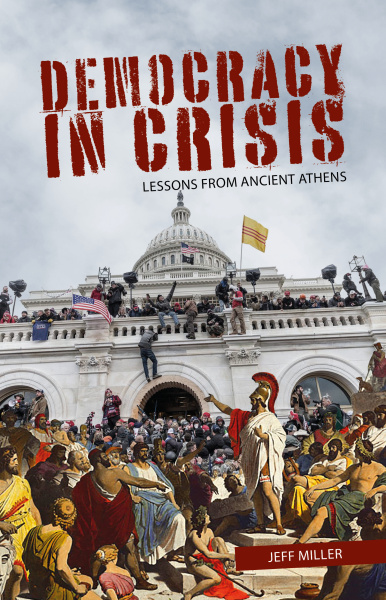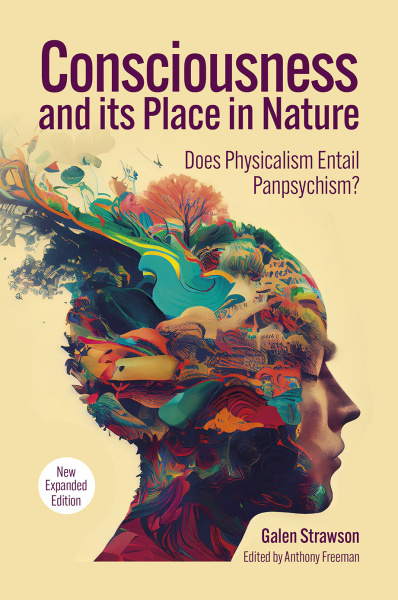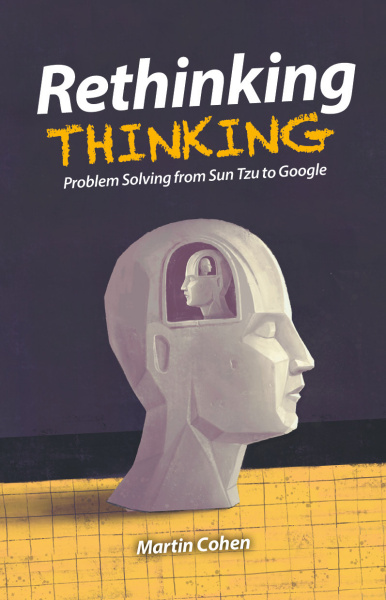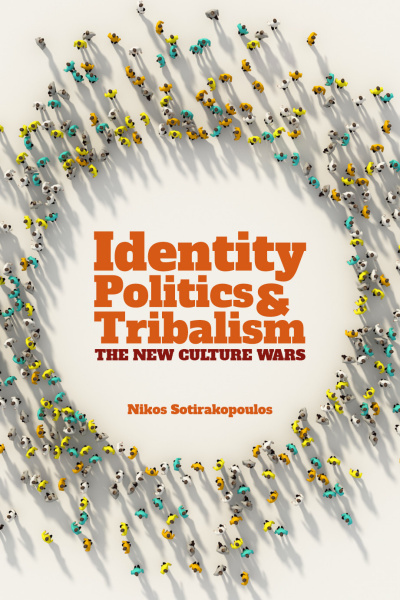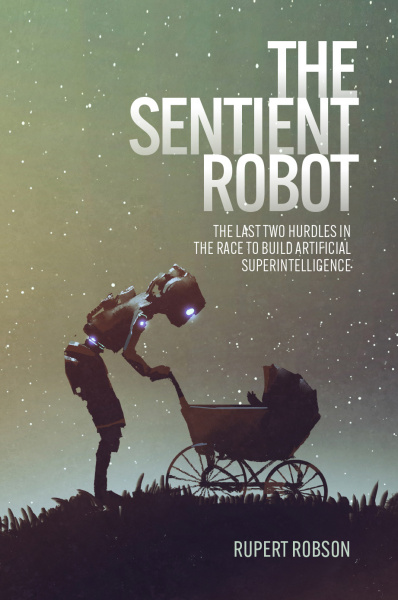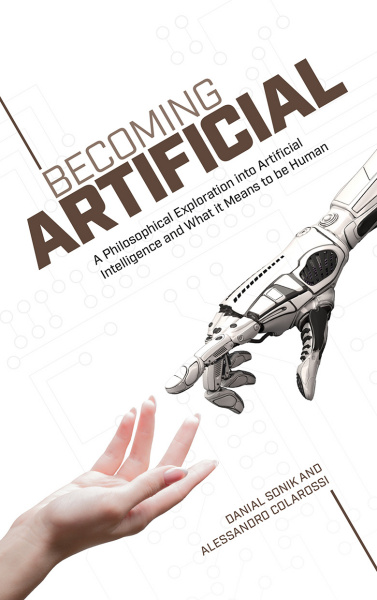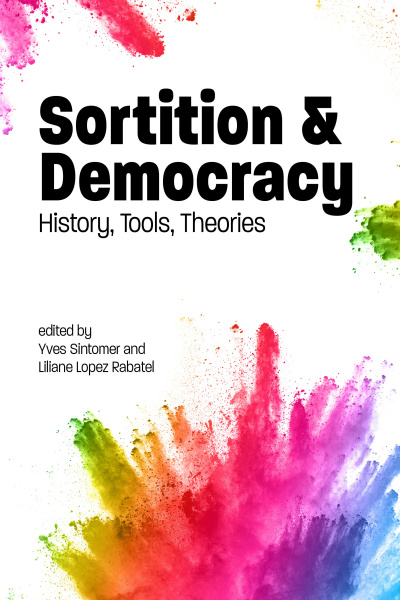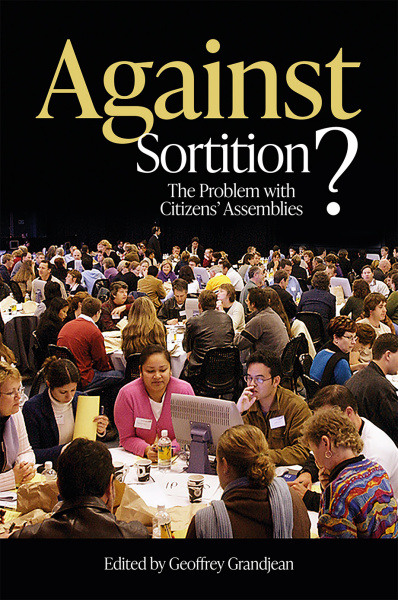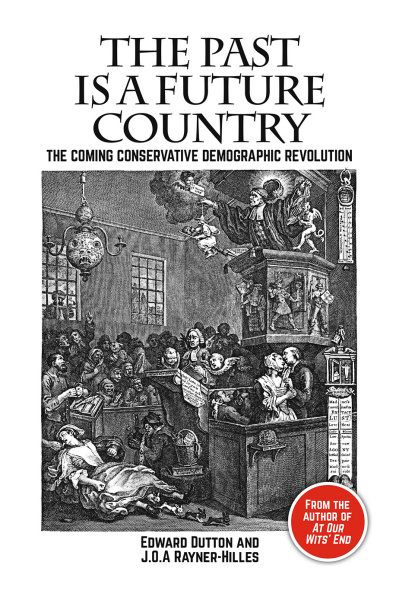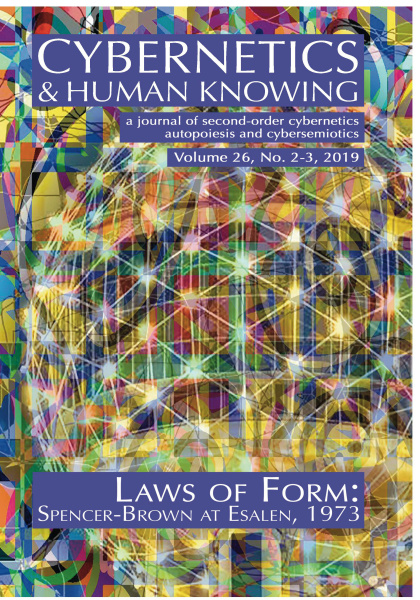Imprint Academic
-

Unknowable Minds
Philosophical Insights on AI and Autonomous Weapons
Unknowable Minds delves into the unsettling reality of entrusting our safety to an intelligence that lacks human essence. The book explores how AI differs from any technology we've ever developed, its inherent complexities, and the profound risks it poses to our future.
-

The Hope of the Poor
Philosophy, Religion and Economic Development
Is economic development the best hope for the world's poor? This book aims to add a philosophical dimension to the debate about this question. The author argues in favour of replacing quantitative assessments of wealth and poverty with a qualitative account of the ways in which human lives can be enriched or impoverished.
-

The Tango of Ethics
Intuition, Rationality and the Prevention of Suffering
A key paradigm in The Tango of Ethics is the conflict and interplay between two fundamentally different ways of seeing and being in the world — that of the intuitive human being who wants to lead a meaningful life and thrive, and that of the detached, rational agent who wants to prevent unbearable suffering from occurring.
-

The Past is a Future Country
The Coming Conservative Demographic Revolution
The Past is a Future Country shows how a resistant class of intelligent, religious conservatives will band together to preserve enclaves of our currently failing civilization — a failing civilization caused by a rejection of traditional values and an epidemic of narcissists who compete to signal their individuality and moral superiority.
-

Character and Virtues
10 Years of the Jubilee Centre
This book captures the key areas of focus of the Jubilee Centre's work over the past ten years. It would be of interest to those who have followed any part of the Jubilee Centre’s journey since 2012, as well as researchers into character and virtues and character educators in schools and universities.
-

Quality of Life
A Post-Pandemic Philosophy of Medicine
The Covid-19 pandemic has shown the need for a fresh look at health and health care. This book offers a philosophical critique of medicine as applied science, but more positively it stresses the social causes of disease and argues for greater equity in the distribution of resources and the benefits of a wider evidence-base for medical treatments.
-

ZAP
Free Speech and Tolerance in the Light of the Zero Aggression Principle
In ZAP, Gerard Casey presents a critical and unified approach to both free speech and tolerance based on the Zero Aggression Principle, keeping the critical discussion topical and grounded by reference to current events.
-

Immigration Control in a Warming World
Realizing the Moral Challenges of Climate Migration
In the 21st century, climate change is projected to increase the already significant immigration pressures that rich countries in Europe and North America face. However, the willingness of citizens in destination countries to let further foreigners immigrate is unlikely to keep pace with that increase. These issues are discussed in this book.
-

Michael Oakeshott: Notebooks, 1922-86
The sixth volume in the series Michael Oakeshott: Selected Writings. From the 1920s to the 1980s Oakeshott filled dozens of notebooks with his private reflections, both personal and intellectual. Their contents range from aphorisms to miniature essays, forming a unique record of his intellectual trajectory over his entire career.
-

Get Over Yourself
Nietzsche for Our Times
Get Over Yourself both uses Nietzsche's philosophy to understand our society, and takes our society to explain his philosophy.
-

Art, Morality and Human Nature
Writings by Richard W. Beardsmore
This collection brings together the text of the monograph Art and Morality by the philosopher Richard Beardsmore along with fourteen other essays (both published and previously unpublished) in which he explores further some of the themes of his seminal book.
-

Lord Kames
Selected Writings
Library of Scottish Philosophy volume containing selected writings of Henry Home, Lord Kames, judge, jurist and philosopher.
-

The Moral Philosophy of Elizabeth Anscombe
In this collection of new essays deriving from a conference held in Oxford aspects of Elizabeth Anscombe's moral philosophy are examined. Anyone interested in Anscombe's work all want to read this volume.
-

Spinoza
Basic Concepts
Spinoza: Basic Concepts explores key concepts involved in Spinoza's thinking, relating it to his understanding of philosophy, outlining the arguments and explaining the implications of each concept. Together, the chapters cover the full range of Spinoza’s interdisciplinary system of philosophy.
-

Capitalism and Human Values
In this book we construct a foundation for values based on our common humanity and explore personal, social and political values from a fresh perspective.
-

The Decision Trap
Genetic Education and Its Social Consequences
The Decision Trap questions a dogma of our time: the assumption that genetic education empowers citizens and increases their autonomy.
-

Orwell's Faded Lion
The Moral Atmosphere of Britain 1945-2015
This book confronts the actual direction taken by British society against the background of the high hopes of the generation that survived the war.
-

Giovanni Gentile and the State of Contemporary Constructivism
A Study of Actual Idealist Moral Theory
Giovanni Gentile and the State of Contemporary Constructivism represents the first book-length treatment of actual idealist moral theory.
-

Educating Character Through Stories
This book argues that the narratives and stories of great literary works are of neglected significance and value for contemporary understanding of human moral association and character.
-

The Unleashed Scandal
The End of Control in the Digital Age
In an age of ubiquitous digital media and permanent mutual observation scandals are omnipresent. This books describes recent case-(hi)stories, discussing public figures such as Tiger Woods and Anthony Weiner, the powerful and the helpless that suddenly find themselves in a worldwide pillory.
-

Thomas Reid
Selected Philosophical Writings
The aim of this comprehensive selection of his writings is to make the key elements of Reid's philosophical work available to a new generation of readers.
-

The Philosophy of Punishment
In this volume, the author sets aside the usual division between theories of punishment that do or do not focus on retribution. In its place he proposes and explores the distinction between internalist and externalist theories.
-

Natural Law, Economics and the Common Good
In this volume a distinguished set of authors explore various economic, philosophical, and ethical ideas from historical, contemporary, and future-looking perspectives.
-

Friendship and the Political
Kierkegaard, Nietzsche, Schmitt
This book reappraises the idea of "friendship" in contemporary political thought. The author explores the possibilities for theorising friendship in modern times through an examination of three seminal thinkers: Kierkegaard, Nietzsche and Schmitt.
-

Truth and Faith in Ethics
This addition to the St Andrews Studies series contains a wide-ranging collection of essays on all aspects of moral philosophy and its impact upon public life in the twent-first century.
-

Speciesism, Painism and Happiness
A Morality for the 21st Century
Richard Ryder created the term speciesism in early 1970 and shared the idea with Peter Singer, who popularised it in his classic work Animal Liberation (1975).
-

On Liberty and Peace Part 2
Peace
The author writes: In this project I set out to provide an answer to two fundamental questions of political philosophy. How can human beings live together, in conditions of co-operation over time, enjoying what Kant famously called 'perpetual peace'? And how much individual freedom can we expect to enjoy?
-

On Being Someone
A Christian Point of View
This book continues the discussions in "What a piece of work: on being human" (Imprint Academic 2006) and may be considered its sequel. In this volume the author leaves aside comparisons with our fellow creatures in order to attend to our own experience.
-

The Metaphysics of Self-realisation and Freedom
Part One of the Liberal Socialism of Thomas Hill Green
This first part of Colin Tyler's new critical assessment of the social and political thought of T.H. Green (1836–1882) explores the grounding that Green gives to liberal socialism.
-

Evolving Ethics
The New Science of Good and Evil
This book describes the application of Artificial Life simulation to evolutionary scenarios of wide ethical interest, including the evolution of altruism, rape and abortion, providing a new meaning to "experimental philosophy".
-

The Earth Is Our Home
Mary Midgley's critique and reconstruction of evolution and its meanings
This book demonstrates that Mary Midgley's philosophy of evolution points the way towards considering the earth as our only true home, since we are products of this planet and its evolving and complex life along with every other organism.
-

Thomas Brown
Selected Philosophical Writings
The selections in this volume illustrate Brown's original ideas about mental science, cause and effect, emotions and ethics. They are preceded by an introduction situating Brown’s career and writings in their intellectual and historical context.
-

Profit, Prudence and Virtue
Essays in Ethics, Business and Management
Essays in the ethics of business and management.
-

Practical Philosophy
Ethics, Society and Culture
In this wide ranging volume of philosophical essays John Haldane explores some central areas of social life and issues of intense academic and public debate.
-

Here For Our Children's Children?
Why we should care for the earth
This study reviews the many different bases for wanting to preserve the environment. By seeing how protagonists approach the same situation from different assumptions, some of the origins of environmental conflict may be established, and ways of resolving conflict can be identified.
-

Darwinian Conservatism
A Disputed Question
A reprint of Larry Arnhart's essay Darwinian Conservatism with comment and criticism from a variety of contributors.
-

Self and Society
Studies in the Evolution of Culture
A series of essays on the evolution of culture, dealing with topics including the city and consciousness, evolution of the afterlife, literary and mathematical archetypes, machine consciousness and the implications of 9/11, and the invasion of Iraq.
-

Vocabulary of a Modern European State
Essays and Reviews 1953-1988
The Vocabulary of a Modern European State is the companion volume to The Concept of a Philosophical Jurisprudence and completes the enterprise of gathering together Oakeshott's previously scattered essays and reviews.
-

Origin of Humanness in the Biology of Love
The central concern of this book is us human beings. The authors' basic question is: 'How is it that we can live in mutual care, have ethical concerns, and at the same time deny all that through the rational justification of aggression?’
-

Faith in a Hard Ground
Essays on Religion, Philosophy and Ethics
Elizabeth Anscombe's forthright philosophy speaks directly to many religious and ethical issues of current concern.This collection of her essays forms a companion volume to the critically acclaimed Human Life, Action and Ethics published in 2005.
-

Enemies of Progress
Dangers of Sustainability
This polemical book examines the concept of sustainability and presents a critical exploration of its all-pervasive influence on society, arguing that sustainability, manifested in several guises, represents a pernicious and corrosive doctrine that has survived primarily because there seems to be no alternative to its canon.
-

In Bed with Madness
Trying to make sense in a world that doesn't
In Bed with Madness is 'a well-argued, powerful and profound indictment of contemporary culture', stylishly written – a reviewer said he would have bought it just for its humour!
-

The Future of the Past
From the culture of profit to the culture of joy
Universalism in its old forms has, just like door-to-door milkmen, gone for good. But the search for some universally accepted ethical standards cannot be abandoned. Looking into our world from the classical Greek point of view, Yannis Andricopoulos wonders whether we cannot place Justice again at the heart of our morality.
-

Forgiveness
How Religion Endangers Morality
In his book The Moral Case against Religious Belief (1997), the author argued that some important virtues cease to be virtues at all when set in a religious context, and that a religious life is, in many respects, not a good life to lead. In this sequel he takes up the theme again.
-

Joseph Conrad Today
This book argues that the novelist Joseph Conrad's work speaks directly to us in a way that none of his contemporaries can. Conrad's scepticism, pessimism, emphasis on the importance and fragility of community, and the difficulties of escaping our history are important tools for understanding the political world in which we live.
-

Scottish Philosophical Theology
This volume concentrates on the period from the beginning of the 18th century to the latter part of the 20th. It is impossible to depict a single school of philosophical theology in Scotland across three centuries, yet several strains have been identified.
-

John Grote, Cambridge University and the Development of Victorian Thought
This book answers three questions: How did John Grote develop and contribute to modern Cambridge and British philosophy? What is the significance of these contributions to modern philosophy in general and British Idealism and language philosophy in particular? How were his ideas and his idealism incorporated into the modern philosophical tradition?
-

Making God
A New Materialist Theory of the Person
Developments in psychology mean that our view of persons is unlike the great teachers of the Axial Age -- the Buddha, Confucius, Zoroaster, etc. -- and therefore the God they made can no longer serve as ours. We have to make our own. So argues Ann Long in this fascinating exploration of personhood, religion and moral value.
-

Dialectics of the Self
Transcending Charles Taylor
Charles Taylor is a philosopher concerned with morality and the nature of the identity of individuals and groups in the West. This book offers an evaluation of Taylor's conception of self, and its moral and political possibilities.
-

Earthy Realism
The Meaning of Gaia
GAIA, named after the ancient Greek mother-goddess, is the notion that the Earth and the life on it form an active, self-maintaining whole. With global warming now an accepted fact, the lessons of GAIA have never been more relevant and urgent.
-

Right Road to Radical Freedom
This work focuses on the topic of freedom. The author starts with the old issue of free will — do we as individual human beings choose our conduct, at least partly independently, freely?
-

Life, Liberty, and the Pursuit of Utility
Happiness in Philosophical and Economic Thought
A volume on the nature, ingredients, causes and consequences of human happiness by the father and son team of Anthony and Charles Kenny.
-

What a Piece of Work
On Being Human
This is a small book on a large subject: What is special about human beings?
-

Philosophy of War and Peace
This book considers historical and current events from the standpoint of moral philosophy.
-

Human Life, Action and Ethics
Essays by G.E.M. Anscombe
This volume presents a collection of essays by the celebrated philosopher Elizabeth Anscombe. This collection includes papers on human nature and practical philosophy, together with the classic 'Modern Moral Philosophy'.
-

Putting Morality Back into Politics
Machiavelli almost succeeded in removing morality from European politics and, indeed, since his day it has sometimes been assumed that morality and politics are separate. Ryder argues that the time has come for public policies to be seen to be based upon moral objectives.
-

Mendacious Colours of Democracy
An Anatomy of Benevolent Lying
'Politics is a noble, but also a dirty, business. To gain election — and retain office — politicians are frequently compelled to be dishonest. They engage in benevolent lying because obstruction by stupid voters will otherwise stop them advancing the national interest as they see it.' So claims the author of this eye-opening book.
-

Moral Mind
A Study of What it is to be Human
The reality and validity of the moral sense — which ordinary people take for granted — took a battering in the last century. Haslam shows how important the moral sense is to the human personality and exposes the weakness in much current thinking that suggests otherwise.
-

Puritan Democracy of Thomas Hill Green
The central concern of this book is to demonstrate how Puritanism was a theme which ran through all Green's biography and political philosophy.
-

Darwinian Conservatism
This book suggests that Darwinian biology sustains conservative social thought by showing how the human capacity for spontaneous order arises from social instincts and a moral sense shaped by natural selection in human evolutionary history.
-

Great Abdication
Why Britain's Decline is the Fault of the Middle Class
The middle class provides British society with its stability and strength. According to Deane's contentious thesis, our middle class has abstained from its responsibility to uphold societal values, and the enormously damaging collapse of our society’s norms and standards is largely a result of that abdication.
-

Creatures Like Us?
As a child brought up among animals, Lynne Sharpe never doubted they were essentially 'creatures like us'. It came as a shock to learn that others did not agree. Here she exposes the bizarre way in which many philosophers — including even some great and humane ones — have repeatedly talked and written about animals.
-

Religious and Poetic Experience in the Thought of Michael Oakeshott
This book argues that Oakeshott's characterisations of religious and poetic experience provide a more detailed account of the type of persona that emerged in response to what it perceived as an invitation to participate in moral association in the modern world.
-

Relativism and the Foundations of Liberalism
Moral relativism is often regarded as both fatally flawed and incompatible with liberalism. This book aims to show why such criticism is misconceived.
-

Values, Education and the Human World
The essays in this book consist of revised versions of Victor Cook Memorial Lectures.
-

Philosophy and Its Public Role
This brings together moral, social and political philosophers from Britain, Canada, New Zealand and the United States who explore a wide range of issues under the three headings of Philosophy, Society and Culture; Ethics, Economics and Justice; and Rights, Law and Punishment.
-

Snake That Swallowed Its Tail
Some Contradictions in Modern Liberalism
Tracing its effects through the media, politics and the public services, the author argues that hollowed-out liberalism has helped to produce our present discontent.
-

James Beattie
Selected Philosophical Writings
The first part of this selection — the first ever made from Beattie's prose writings — includes several key chapters from the Essay on Truth, along with extracts from all of Beattie's other works on moral philosophy. The second part of the selection is devoted to Beattie's contributions to literary criticism and aesthetics.
-

Liberty Option
The Liberty Option advances the idea that for compelling moral as well as practical reasons it is the free society -- with the rule of law founded on the principles of private property rights, its complete respect for individual sovereignty and properly limited legal authorities -- not one or another version of statism that serves justice best.
-

God in Us
A Case for Christian Humanism
God In Us is a radical representation of the Christian faith for the 21st century. Following the example of the Old Testament prophets and the first-century Christians it overturns received ideas about God. God is not an invisible person 'out there' somewhere, but lives in the human heart and mind as 'the sum of all our values and ideals'.
-

Evolutionary Origins of Morality
Cross Disciplinary Perspectives
This volume includes four principal papers and a total of 43 peer commentaries on the evolutionary origins of morality.
-

Holding Up a Mirror
How Civilizations Decline
Using theatre as a measure society's health, this book shows that Ancient Greece and Rome, Medieval Christendom and our own contemporary society all follow the same pattern: prosperity thrives on the conviction that the material world alone constitutes true 'reality’; but that very conviction leads to a rejection of the supernatural.
